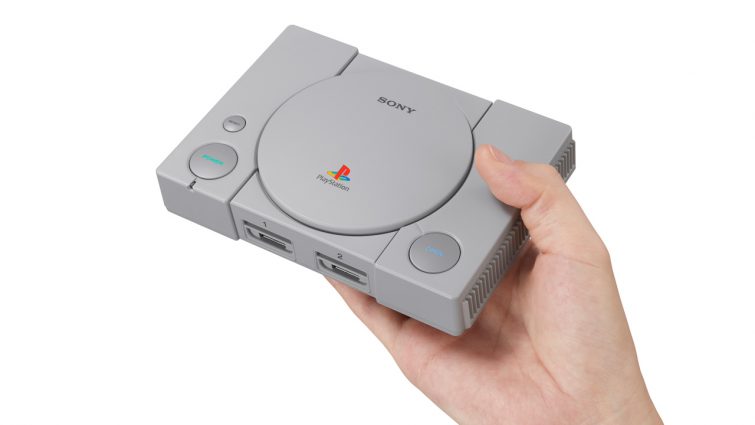
Sony is a Sore Winner: What the Release of the PS1 Classic Shows About Sony’s Larger Bad Behavior
On Tuesday, September 18th, it was announced on the PlayStation blog that Sony is releasing the PlayStation Classic, seemingly in a similar vein to Nintendo’s mini NES and SNES. While it isn’t all that surprising that Sony would want in on the success Nintendo’s mini-consoles have brought them, the announcement does seem to stray from their stated stance on older games.
In an interview with Gamespot last year, PlayStation Europe exec Jim Ryan said “when we’ve dabbled with backwards compatibility, I can say it is one of those features that is much requested, but not actually used much.” He went on to question why anyone would want to play PS1 and 2 games that “look ancient.”
In the wake of Nintendo’s success with their tiny classic consoles, this isn’t surprising, but it doesn’t make it suck less. Basically, Sony won’t give their audience an easy way to buy and play old games on modern systems, but they will charge $100 for a little nostalgia box with twenty pre-loaded games, the first five of which are less than impressive.
This fits the bill perfectly for Sony’s behavior since overtaking Microsoft this console generation. Fans have consistently had to deal with the company ignoring their complaints about lack of cross-play for some of their favorite games, lack of backwards compatibility (that doesn’t incorporate PlayStation Now), and the inability to change their PlayStation Network usernames, something Microsoft has had for years.
Due to their botched announcement for the Xbox One, and subsequent lack of powerhouse first-party games, Microsoft has had to cover a lot of ground to regain the trust and support of their fans. This has resulted in Xbox pushing several initiatives that have been beneficial to players as both consumers and people. Examples of this include an ever-growing list of backwards compatible games, the accessible controller, and creating the Xbox Gaming for Everyone industry professional network, which has a slew of events and talks from marginalized folks in the gaming industry.
Sony hasn’t done this kind of work nearly to the same level, because they haven’t had to. They know can rely heavily on the knowledge that people will buy their next exclusive AAA title regardless of the shitty things they do, so they haven’t had to do any work to improve themselves or their business practices. In fact, their reliance on the pedigree of their first party studios has actively kept them from speaking out about some of the nastier aspects of this industry.
In the past year, two of Sony’s first party studios, Naughty Dog and Quantic Dream, have had allegations of misconduct and poor treatment of their employees. Naughty Dog had an employee allege sexual harassment, and Quantic Dream had an entire expose written about them by three separate French news outlets on the toxicity of their workplace and studio culture.
Sony France responded to the Quantic Dream situation disappointingly, stating “as an independent development studio, Quantic Dream is responsible for its social and salary policy. More generally, we expect our suppliers and partners to comply with the laws and practices in force in their country. We have no other comment.”
The extremely brief joint statement that came from Naughty Dog and Sony was similarly disappointing, stating that “we have not found any evidence of having received allegations from Mr. Ballard that he was harassed in any way at Naughty Dog or Sony Interactive Entertainment,” though the statement came out within 24 hours of the claims gaining attention on Twitter. Since then, it seems there has been no further action/investigation into the claims.
Whether they want to admit it or not, Sony is directly attached to Quantic Dream and Naughty Dog. As a publisher, if you have a studio under your umbrella, you are associated with the behavior and values of that studio. Sony may not be able to directly control how studio heads run development, or how they treat their employees, but they don’t have to continue working with them once knowledge of abuses comes to light.
Refusing to do this demonstrates that Sony values profits over people, which isn’t surprising given it’s a giant corporation. But it does beg a question of us as consumers: are games like these worth it? Are we willing to let people be mistreated to have the next Last of Us or David Cage mystery?
There’s power in what we buy, and who we buy it from. Whether it’s the lack of backwards compatibility while attempting a nostalgia-driven cash grab, dropping support of indies, or ignoring allegations against the studios under their brand, we shouldn’t allow Sony to continue their bad behavior just because they’re “winning” this generation. They’re on top because of us, and we have the power to hold them accountable.
Image courtesy of the PlayStation Blog





